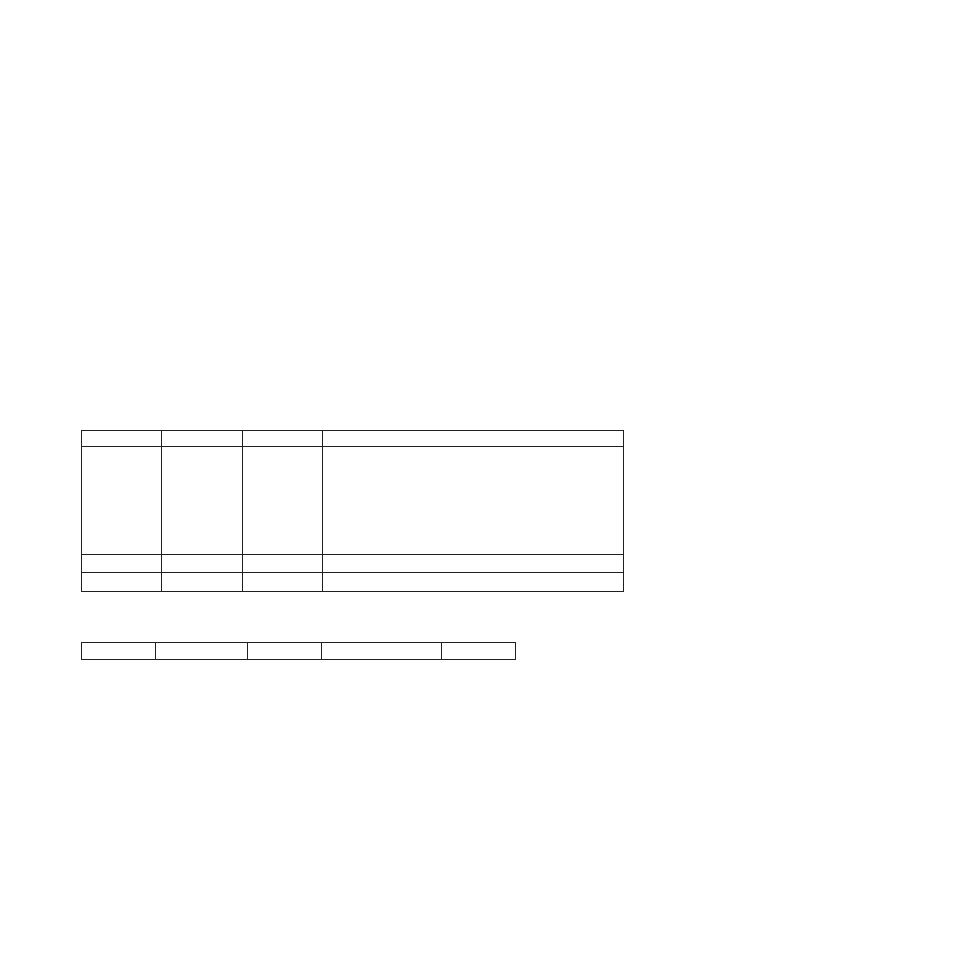Load font equivalence (lfe) – Compuprint 4247-Z03 Programmer Manual User Manual
Page 127

v
Whenever the printer detects a command stream error or device error and a negative response must be
sent.
A negative response has priority over a positive response.
If the printer can identify the command and the command has a correlation ID, the Acknowledge Reply
contains a correlation ID that matches the command.
The maximum length of this command is 255 bytes. If there is a five-byte command header (no correlation
ID present), the data field can be up to 250 bytes long. If a correlation ID is present in the header, the
maximum data field length is 248 bytes. The Acknowledge Reply data field contains the acknowledgment
type, page/copy counters, and a Special Data (SD) area. The printer loads the Special Data area with the
appropriate data when one of the following occurs:
1. The printer receives one of the following information request commands:
v
Sense Type and Model
v
Obtain Printer Characteristics
v
Request Resource List.
2. An error occurs. Under this condition, the printer loads the special data area with the sense bytes and
sends a negative acknowledgment (NACK) to the host.
The format of the Acknowledge Reply data field follows:
Decimal
Hex
Value
Description
0
0
Acknowledgement Type
00
Positive - No Special Data (SD)
01
Positive - Sense Type/Model (STM) Data in SD
04
Positive - Request Resource List (RRL) in SD
06
Positive - Obtain Printer Characteristics (OPC) in SD
80
Negative - Sense Bytes in SD
1-4
1-4
XX...XX
5-n
5-n
XX...XX
Load Font Equivalence (LFE)
Length
D63F
Flag
Correlation ID (Optional)
DATA
The Load Font Equivalence command maps font identifiers. The fonts do not have to exist in the printer
when the printer receives this command.
In the home state, this command creates a new font equivalence record that completely replaces the
current LFE record. In the page state:
v
The font equivalence entries in this command add to the current LFE entries, or
v
If identical local font identifiers (byte 1) exist, this command overlays the current LFE entries.
In the page segment or overlay state, a received LFE is stored as part of the page segment or overlay,
and it does not process until the Include Page Segment or Include Overlay command is received.
The font equivalences for a given page are those that are in effect when the Begin Page command
processes plus those added in the page state. There is a maximum of 20 different loaded font ID/print
quality combinations defined in home or page state. Page segments use the font equivalence tables active
at the time the Include Page Segment command processes. In addition, the LFEs that were stored as part
Chapter 4. IPDS Programming Information
107
